If you're a fan of the alternate history drama 'For All Mankind' (2019), you're likely captivated by its unique blend of historical revisionism, space exploration, and human drama. This article is for you! We've curated a list of 9 movies and TV shows that share similar themes—whether it's the thrill of space travel, the tension of the Cold War, or the emotional depth of personal and political struggles. Dive in to discover your next binge-worthy obsession.
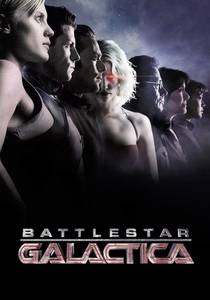
Battlestar Galactica (2004)
Description: Battlestar Galactica and For All Mankind both explore themes of survival, leadership, and human resilience in the face of existential threats. While For All Mankind focuses on an alternate history of space exploration, Battlestar Galactica presents a dystopian future where humanity is on the brink of extinction. Both series emphasize strong character development and moral dilemmas.
Fact: The show was a reimagining of the 1978 series of the same name. It won a Peabody Award for its storytelling. The phrase 'So say we all' became a cultural catchphrase from the show.
 Watch Now
Watch Now 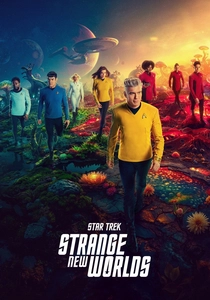
Star Trek: Strange New Worlds (2022)
Description: Star Trek: Strange New Worlds shares For All Mankind's optimistic vision of space exploration and its focus on episodic storytelling. Both shows highlight the wonder and challenges of discovering new worlds, with a strong emphasis on character-driven narratives. Strange New Worlds also features a mix of action, drama, and humor, much like For All Mankind.
Fact: The series is a spin-off from Star Trek: Discovery, focusing on Captain Pike and the USS Enterprise. It returns to the episodic format of classic Star Trek. The show has been praised for its balance of nostalgia and innovation.
 Watch Now
Watch Now 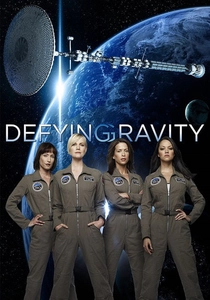
Defying Gravity (2009)
Description: Defying Gravity, like For All Mankind, focuses on the personal and professional lives of astronauts, blending drama with realistic space exploration scenarios. Both shows highlight the emotional and physical toll of space missions, though Defying Gravity incorporates more mysterious and supernatural elements into its narrative.
Fact: The show was co-created by James Parriott, who also worked on Grey's Anatomy. It was canceled after one season due to low ratings. The series was marketed as 'Grey's Anatomy in space.'
 Watch Now
Watch Now 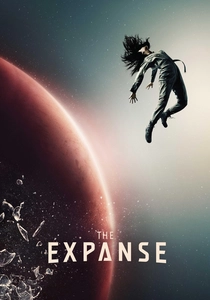
The Expanse (2015)
Description: The Expanse shares similarities with For All Mankind in its realistic portrayal of space exploration and political tensions among factions. Both series delve into the human aspect of space colonization, with a focus on scientific accuracy and detailed world-building. The Expanse, however, extends its narrative into a more distant future involving interplanetary conflict and advanced technology.
Fact: The Expanse was initially canceled by Syfy after three seasons but was revived by Amazon due to fan demand. The show is based on a series of novels by James S.A. Corey. NASA scientists have praised the show for its realistic depiction of physics in space.
 Watch Now
Watch Now 
Mars (2016)
Description: Mars blends documentary and drama to depict the colonization of Mars, similar to For All Mankind's alternate history approach. Both shows emphasize the challenges and triumphs of space exploration, with a strong foundation in real science. Mars, however, uses a hybrid format with interviews from real scientists interspersed with fictional storytelling.
Fact: The show is produced by Ron Howard and Brian Grazer. It features commentary from figures like Elon Musk and Neil deGrasse Tyson. The second season shifts focus from the journey to Mars to the challenges of establishing a colony.
 Watch Now
Watch Now 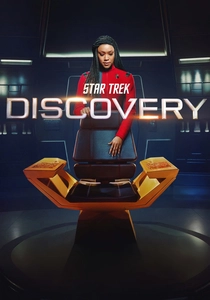
Star Trek: Discovery (2017)
Description: Star Trek: Discovery and For All Mankind both emphasize the importance of exploration and the human spirit. While Discovery is set in a far future with advanced technology, both shows delve into the personal stories of their crews and the ethical dilemmas they face. Discovery also shares For All Mankind's high production values and attention to detail.
Fact: Discovery is the first Star Trek series to feature a female lead character as the protagonist. The show introduced the 'Spore Drive,' a revolutionary propulsion system. It has been noted for its diverse cast and progressive themes.
 Watch Now
Watch Now 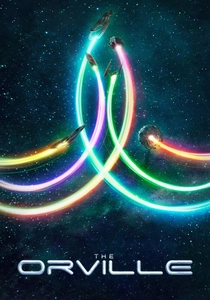
The Orville (2017)
Description: The Orville, while more comedic, shares For All Mankind's optimistic view of humanity's future in space. Both shows explore themes of exploration, diplomacy, and the human condition, though The Orville does so with a lighter tone and frequent humor. The series also pays homage to classic space operas like Star Trek.
Fact: The Orville was created by and stars Seth MacFarlane. It was initially pitched as a drama but incorporated more comedy as it developed. The show has been praised for its special effects and storytelling.
 Watch Now
Watch Now 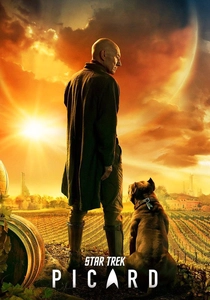
Star Trek: Picard (2020)
Description: Star Trek: Picard, like For All Mankind, explores themes of legacy, exploration, and the impact of past decisions. Both shows feature older protagonists reflecting on their lives and the paths they've taken. Picard's more serialized storytelling and focus on character development align with For All Mankind's narrative style.
Fact: The series marks Patrick Stewart's return to the role of Jean-Luc Picard after 18 years. It explores the aftermath of the destruction of Romulus, a key event in Star Trek lore. The show has been praised for its emotional depth and performances.
 Watch Now
Watch Now 
Ascension (2014)
Description: Ascension shares with For All Mankind a focus on a prolonged space mission and the societal dynamics that emerge. Both series explore the psychological and social challenges of long-term space habitation, though Ascension adds a mystery element with its generational ship premise. The shows also share a mid-20th-century aesthetic in their technology and design.
Fact: Ascension was originally intended to be a full series but was cut down to a miniseries. The show's twist reveals that the ship is actually a secret Earth-based experiment. It features a mix of 1960s aesthetics with futuristic concepts.
 Watch Now
Watch Now 








